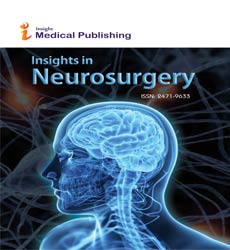Abstract
Brain Disorders 2020: Gut microbiome marks Alzheimers disease
We reported the induction of neurotoxicity and neurodegeneration by tryptophan metabolites that link the metabolic alterations to Alzheimer’s disease (AD). Tryptophan is a product of Shikimate pathway (SP). Human cells lack SP, which is found in human gut bacteria using exclusively SP to produce aromatic amino acids (AAA). The presented study is a first attempt toward gene targeted analysis of human gut microbiota in AD fecal samples. The oligonucleotide primers newly designed for this work target of SP-AAA in environmental bacteria that is associated with the human activity. Using polymerase chain reaction (PCR) we found unique gut bacterial sequence in most AD patients (18 of 20) albeit rarely in controls (1 of 13). Cloning and sequencing AD-associated PCR products (ADPP) enable the identification of Na (+)-transporting NADHu. Biquinone reductase (NQR) in Clostridium sp. The ADPP of unrelated Alzheimer’s disease (AD) patients possess near identical sequences. NQR substrate ubiquinone is a SP product and also a human neuroprotectant
Author(s):
Elena Paley
Abstract | PDF
Share this

Google scholar citation report
Citations : 31
Insights in Neurosurgery received 31 citations as per google scholar report
Abstracted/Indexed in
- Google Scholar
- Directory of Research Journal Indexing (DRJI)
- WorldCat
- Secret Search Engine Labs
Open Access Journals
- Aquaculture & Veterinary Science
- Chemistry & Chemical Sciences
- Clinical Sciences
- Engineering
- General Science
- Genetics & Molecular Biology
- Health Care & Nursing
- Immunology & Microbiology
- Materials Science
- Mathematics & Physics
- Medical Sciences
- Neurology & Psychiatry
- Oncology & Cancer Science
- Pharmaceutical Sciences
